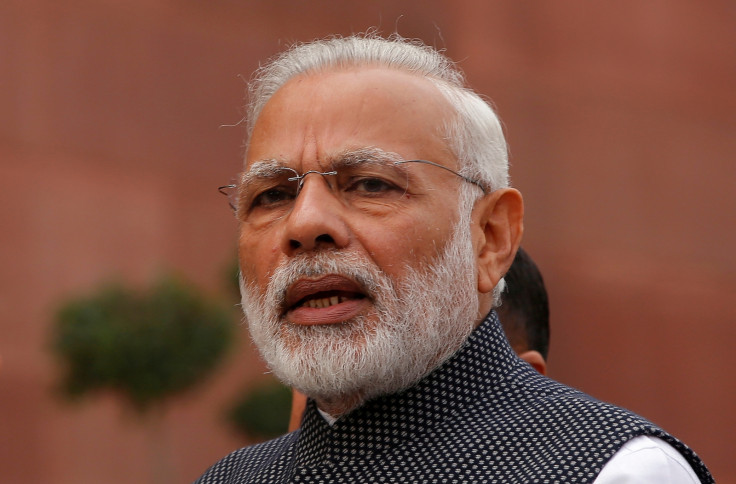Narendra Modi's party reportedly ordered online abuse of journalists, politicians, claims new book
'I Am a Troll' contains accounts from former BJP volunteer, Sadhavi Khosla, who quit the party in 2015.

India's leading political party, BJP (Bharatiya Janata Party), allegedly directly commanded online abuse against key Indian public figures, including journalists, actors and political opponents, claims a new book. A former BJP volunteer has reportedly alleged that the party ordered a special social media unit of party volunteers to target specific individuals and troll them on social media.
Former volunteer Sadhavi Khosla, who quit the BJP in 2015, claims in the book that she was part of the party's social media unit and was one among many party volunteers who was allegedly pushed to target public figures, perceived by the party as dissidents and/or anti-Modi.
The BJP social media trolls' "hit list" included political opponents such rival Congress party's vice president Rahul Gandhi, leading journalists such as Barkha Dutt and Rajdeep Sardesai and Bollywood actor Amir Khan, the Guardian reported.
Khosla claims that she received orders from senior members of the party's digital unit, via WhatsApp, adding that she also met certain senior party officials. She acknowledged that she was a willing participant and used her Twitter account to criticise Rahul Gandhi and his mother Sonia, who is the president of the Congress party. However, Khosla claimed that she began having misgivings about the trolling, when ordered to tweet out criticisms, sometimes featuring "slanderous claims", against prominent Indian journalists.
"It was a never-ending drip feed of hate and bigotry against the minorities, the Gandhi family, journalists on the hit list, liberals, anyone perceived as anti-Modi," she is quoted as saying in the book.
According to the former BJP troll, those targeted by the party's social media wing would often end up receiving a stream of similar critical and abusive messages online, which sometimes veered into criminal threats.
"I simply could not follow [the] directions anymore when I saw rape threats made against female journalists like Barkha Dutt," she said. "Every day some new person was a target and they would attack like a swarm of bees with vile sexual innuendoes, slander, rape and death threats ... It made me feel suffocated as a woman."
The BJP's former social media unit head, Arvind Gupta, dismissed Khosla's claims as unfounded. Stressing that the party never "encouraged trolling", Gupta told the Indian Express that Khosla, "has all reasons to publish unsubstantiated claims" as she now "supports the Congress".
Khosla's account was authored by journalist Swati Chaturvedi, in a new book titled I am a Troll, which looks into links between the BJP and abusive social media accounts.
"The problem is that India is typically patriarchal, and women in public space are not easily accepted. When it comes to cyberspace it becomes very easy for them [to participate]," said Prof K Jaishankar, the executive director of the Tamil Nadu-based Centre for Cyber Victim Counselling.
According to Jaishankar, India's increasingly trenchant online culture has in part been developed due to the internet providing a free space for women in an otherwise patriarchal and conservative society.
"But the patriarchy pervades in cyber space too ... Naturally, [trolls] don't like the presence of women, they don't like that women comment on issues or are very vocal and articulate," he said. "Many of the women who are coming online are elites, like the editor of a magazine or an actor. Whereas the trollers are typically men from a rural or rural-urban continuum, and the internet is the only way they can access these women. So that is one of the reasons why probably they gain a kind of pleasure from targeting high profile women," he said.
© Copyright IBTimes 2025. All rights reserved.






















